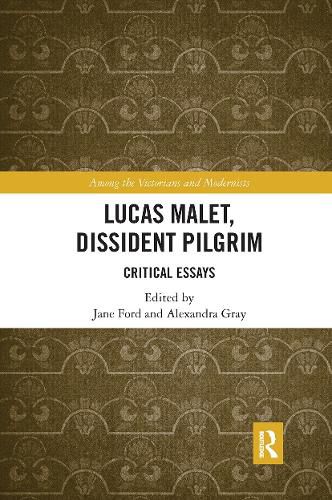Readings Newsletter
Become a Readings Member to make your shopping experience even easier.
Sign in or sign up for free!
You’re not far away from qualifying for FREE standard shipping within Australia
You’ve qualified for FREE standard shipping within Australia
The cart is loading…






Popular novelist, female aesthete, Victorian radical and proto-modernist, Lucas Malet (Mary St. Leger Harrison, 1852-1931) was one of the most successful writers of her day, yet few of her remarkable novels remain in print. Malet was a daughter of the ‘broad church’ priest and well-known Victorian author Charles Kingsley; her sister Rose, uncle, Henry Kingsley and her cousin Mary Henrietta Kingsley were also published authors. Malet was part of a creative dynasty from which she drew inspiration but against which she rebelled both in her personal life and her published work. This collection brings together for the first time a selection of scholarly essays on Malet’s life and writing, foregrounding her contributions to nineteenth- and twentieth-century discourses surrounding disability, psychology, religion, sexuality, the New Woman, and decadent, aesthetic and modernist cultural movements. The essays contained in this volume explore Malet’s authorial experience-from both within the mainstream of the British literary tradition and, curiously, from outside it-supplementing and nuancing current debates about fin-de-siecle women’s writing. The collection asks the question ‘who was Lucas Malet?’ and ‘how-despite its popularity-did her courageous, unique and fascinating writing disappear from view for so long?
$9.00 standard shipping within Australia
FREE standard shipping within Australia for orders over $100.00
Express & International shipping calculated at checkout
Popular novelist, female aesthete, Victorian radical and proto-modernist, Lucas Malet (Mary St. Leger Harrison, 1852-1931) was one of the most successful writers of her day, yet few of her remarkable novels remain in print. Malet was a daughter of the ‘broad church’ priest and well-known Victorian author Charles Kingsley; her sister Rose, uncle, Henry Kingsley and her cousin Mary Henrietta Kingsley were also published authors. Malet was part of a creative dynasty from which she drew inspiration but against which she rebelled both in her personal life and her published work. This collection brings together for the first time a selection of scholarly essays on Malet’s life and writing, foregrounding her contributions to nineteenth- and twentieth-century discourses surrounding disability, psychology, religion, sexuality, the New Woman, and decadent, aesthetic and modernist cultural movements. The essays contained in this volume explore Malet’s authorial experience-from both within the mainstream of the British literary tradition and, curiously, from outside it-supplementing and nuancing current debates about fin-de-siecle women’s writing. The collection asks the question ‘who was Lucas Malet?’ and ‘how-despite its popularity-did her courageous, unique and fascinating writing disappear from view for so long?